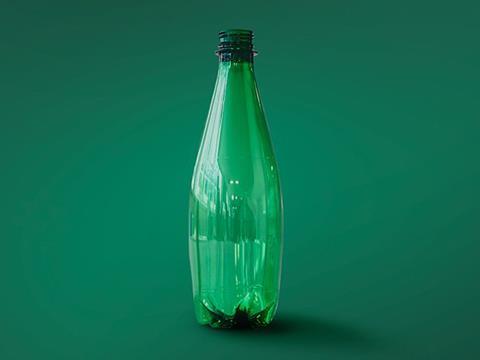
Nestlé has unveiled prototypes for its Perrier water bottles based on a novel recycling technology that the company says allows plastic to be endlessly recycled while maintaining properties that are virtually equivalent to virgin plastics.
The bottles were produced as part of the Carbios global consortium, which also counts L'Oréal, Suntory Beverage & Food Europe, and PepsiCo as members.
Using this technology, experts at Nestlé's research and development centre for Waters in Vittel, France produced the first Perrier 50cl prototype bottles made from coloured recycled PET materials.
The prototypes have been tested in terms of safety, quality, and performance and were also specially adapted to withstand the pressure of carbonated water, all while incorporating the iconic design and green colour of the Perrier bottle.
While recycled PET bottles already exist in the marketplace, Nestlé hopes that this new technology, when developed at an industrial scale, will help increase the amount of PET plastic that can be recycled.
Jean-Francois Briois, head of packaging material science and environmental sustainability for Nestlé Waters global R&D, says: "It is very exciting to see that the quality of the prototype bottles made from 100% coloured recycled PET materials is virtually identical to clear virgin PET.
“Thanks to this partnership with Carbios, we are able to achieve the great challenge of combining quality, iconic design and sustainability. When we reach industrial scale, this enzymatic recycling technology will enable us to produce high-quality rPET bottles and help Nestlé in its journey to reduce the use of virgin plastics."
The Carbios technology uses enzymes from naturally occurring microorganisms to break down PET plastic into its constituent parts, which can then be converted back into new, “virgin grade-like” plastic.
The ground-breaking process is also unique because it reportedly enables the production of recycled PET from any type of PET plastic, regardless of colour or complexity. This apparently allows the recycling of more types of PET plastic that would otherwise go to waste or be incinerated, thus creating an endless, fully closed-loop for plastic recycling.
Nestlé's R&D expertise and infrastructure were also leveraged to create bottle preforms using the technology for other Carbios consortium members. Each member then further blew up the preforms into specific bottle shapes according to their needs.














